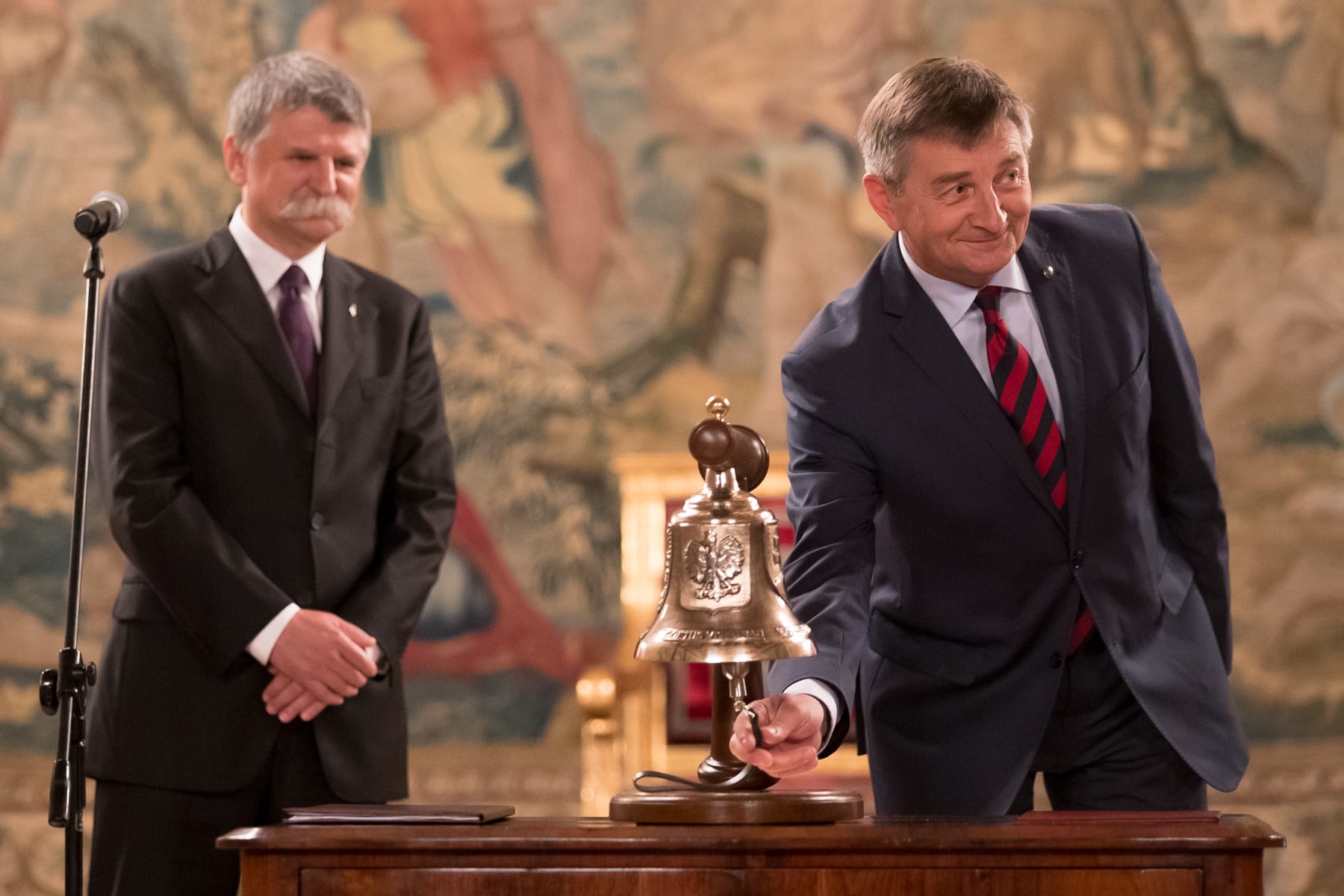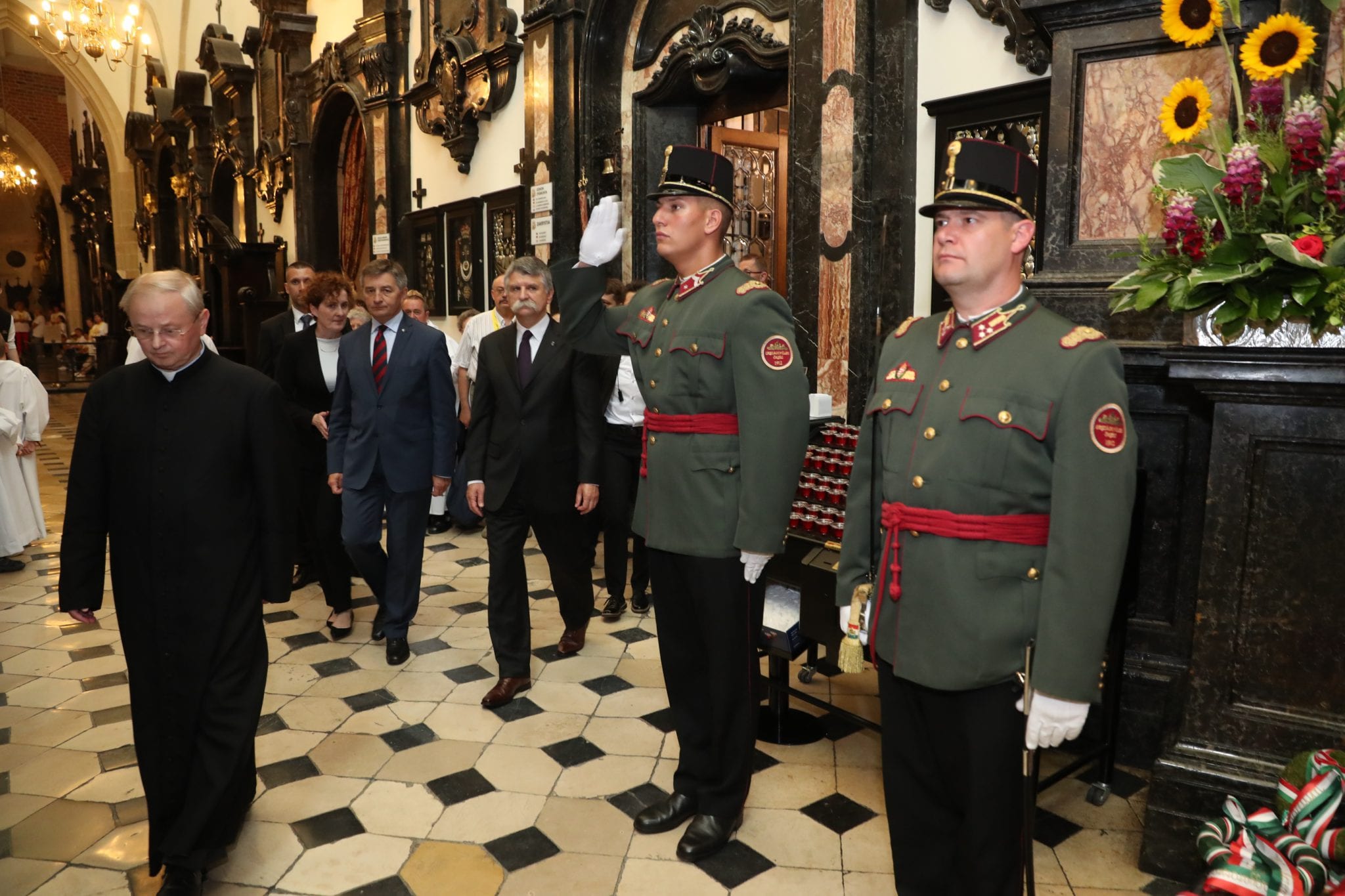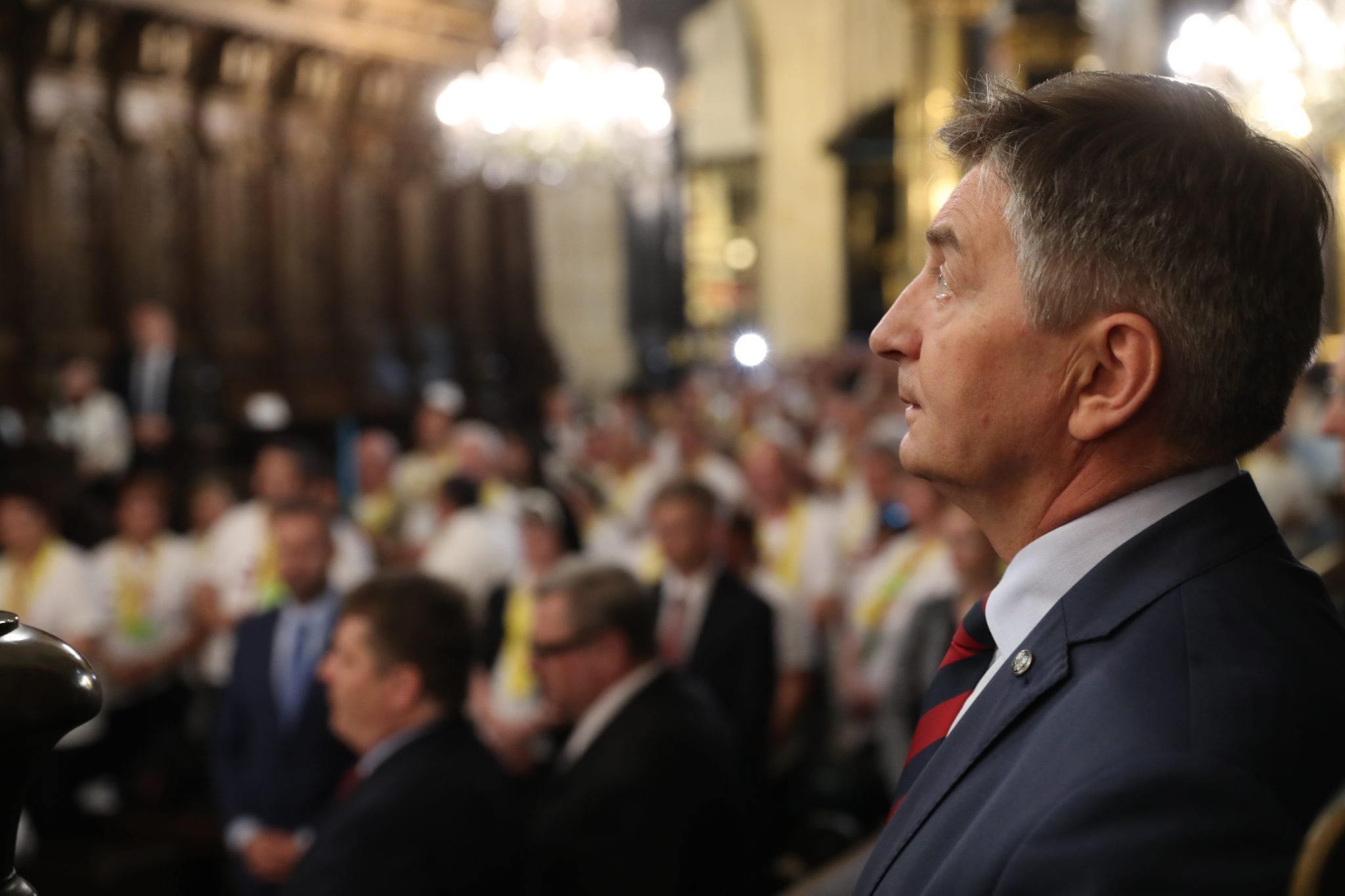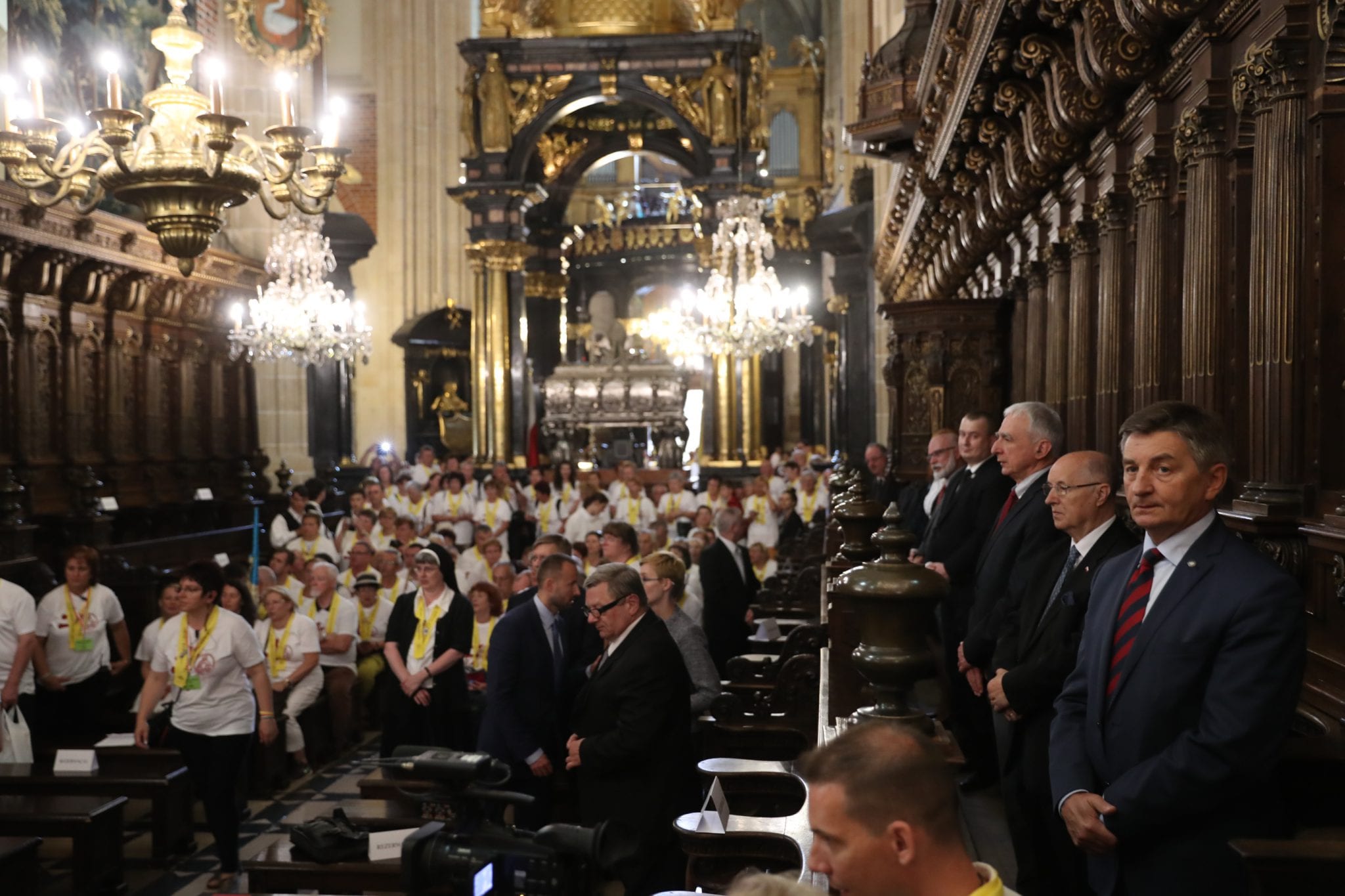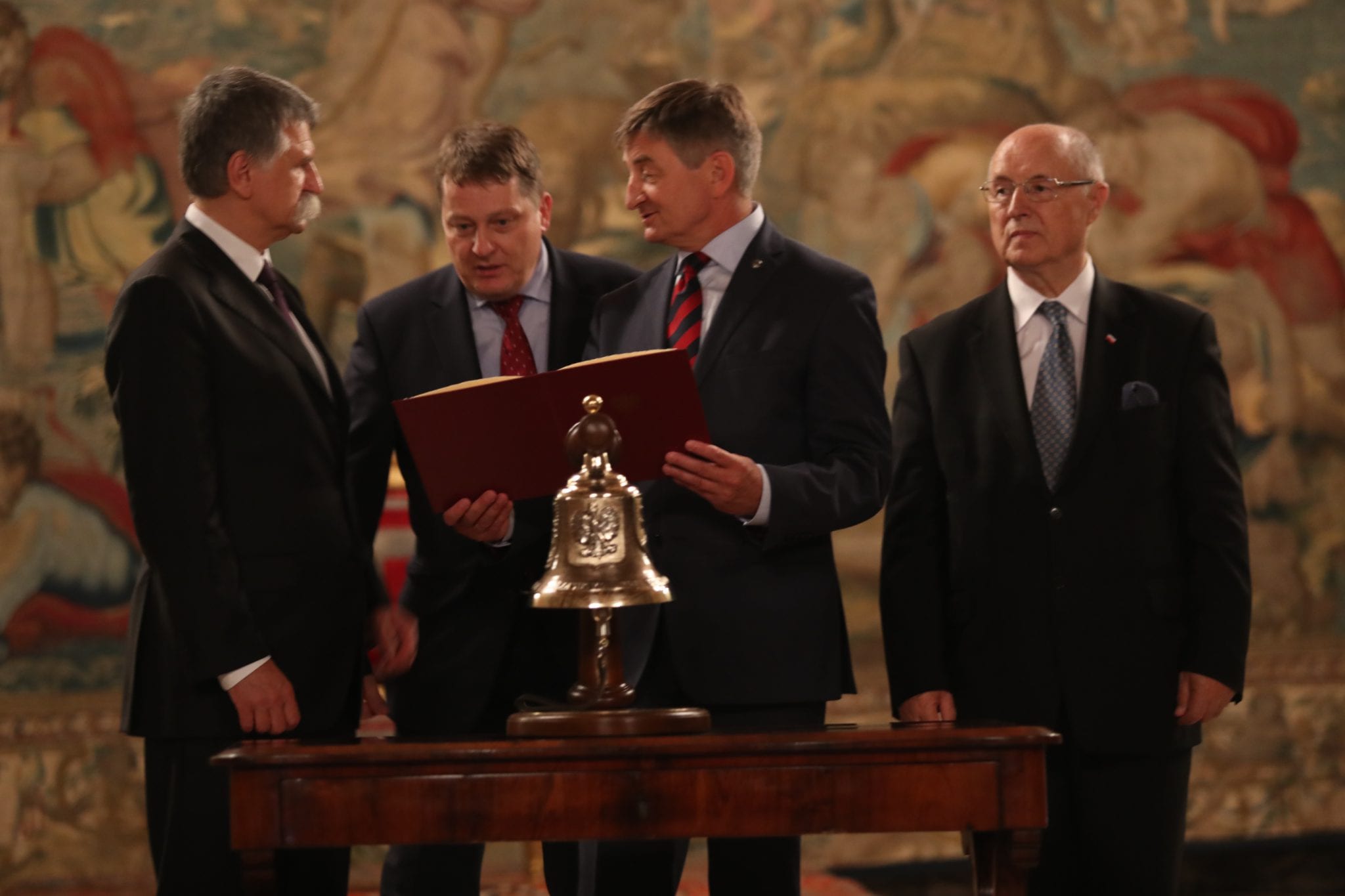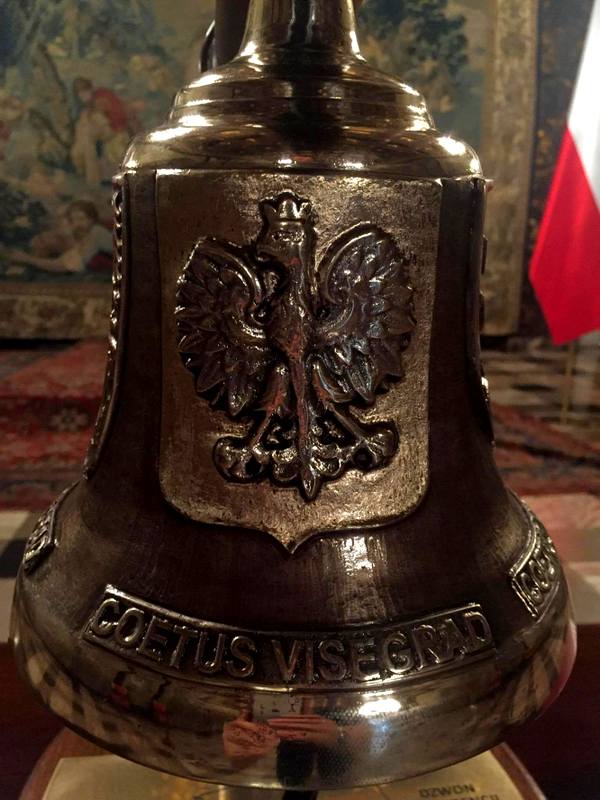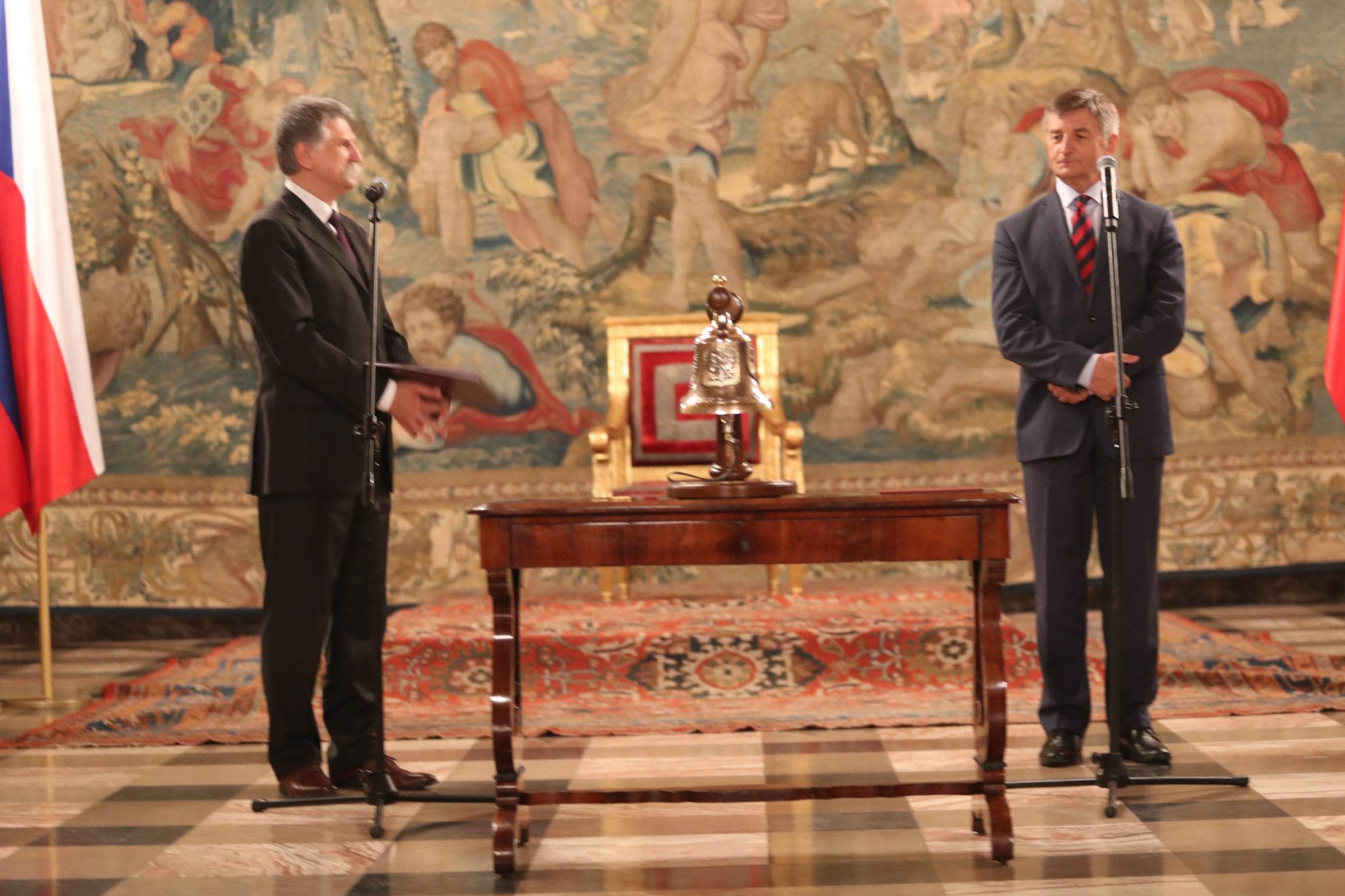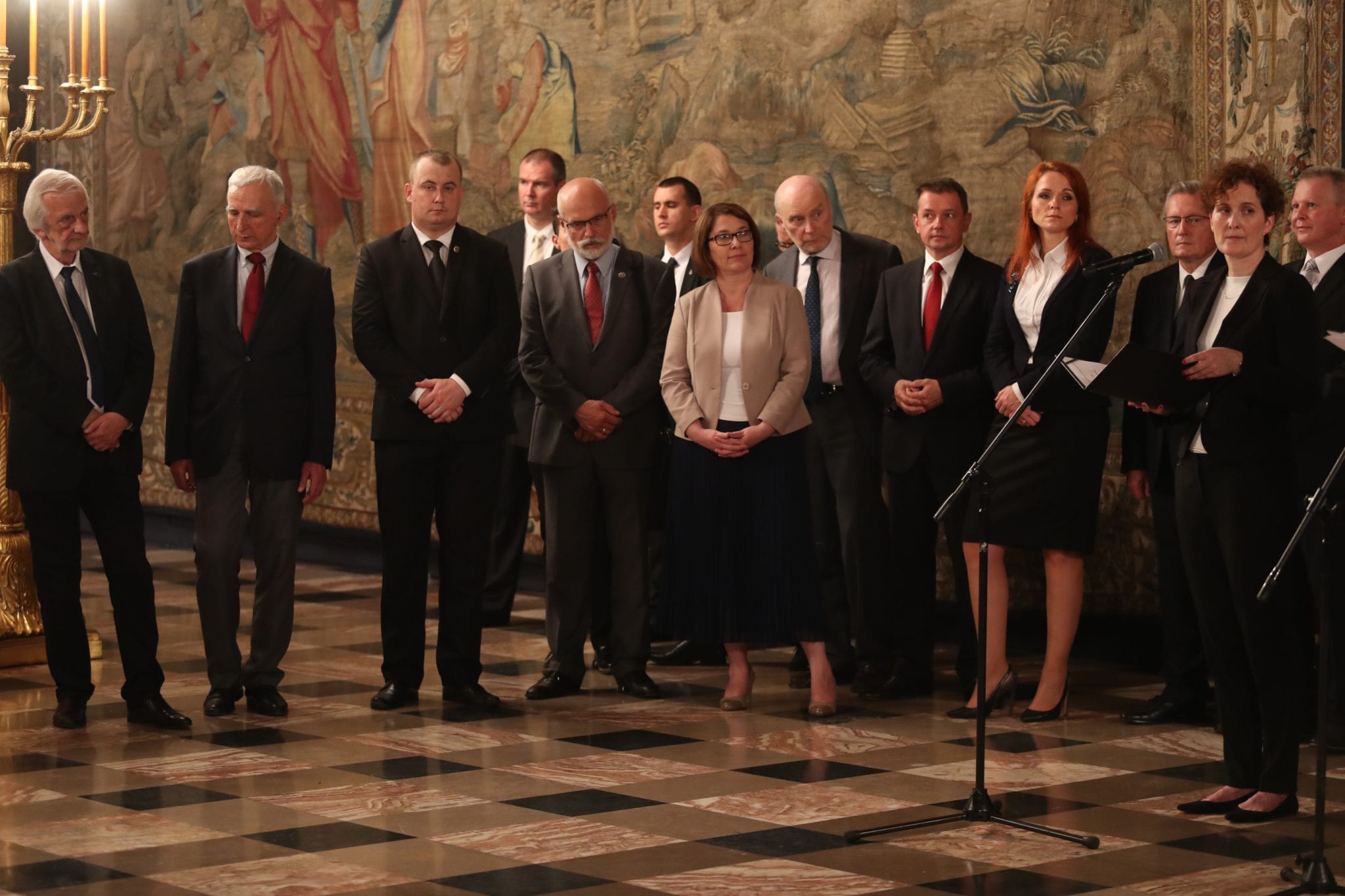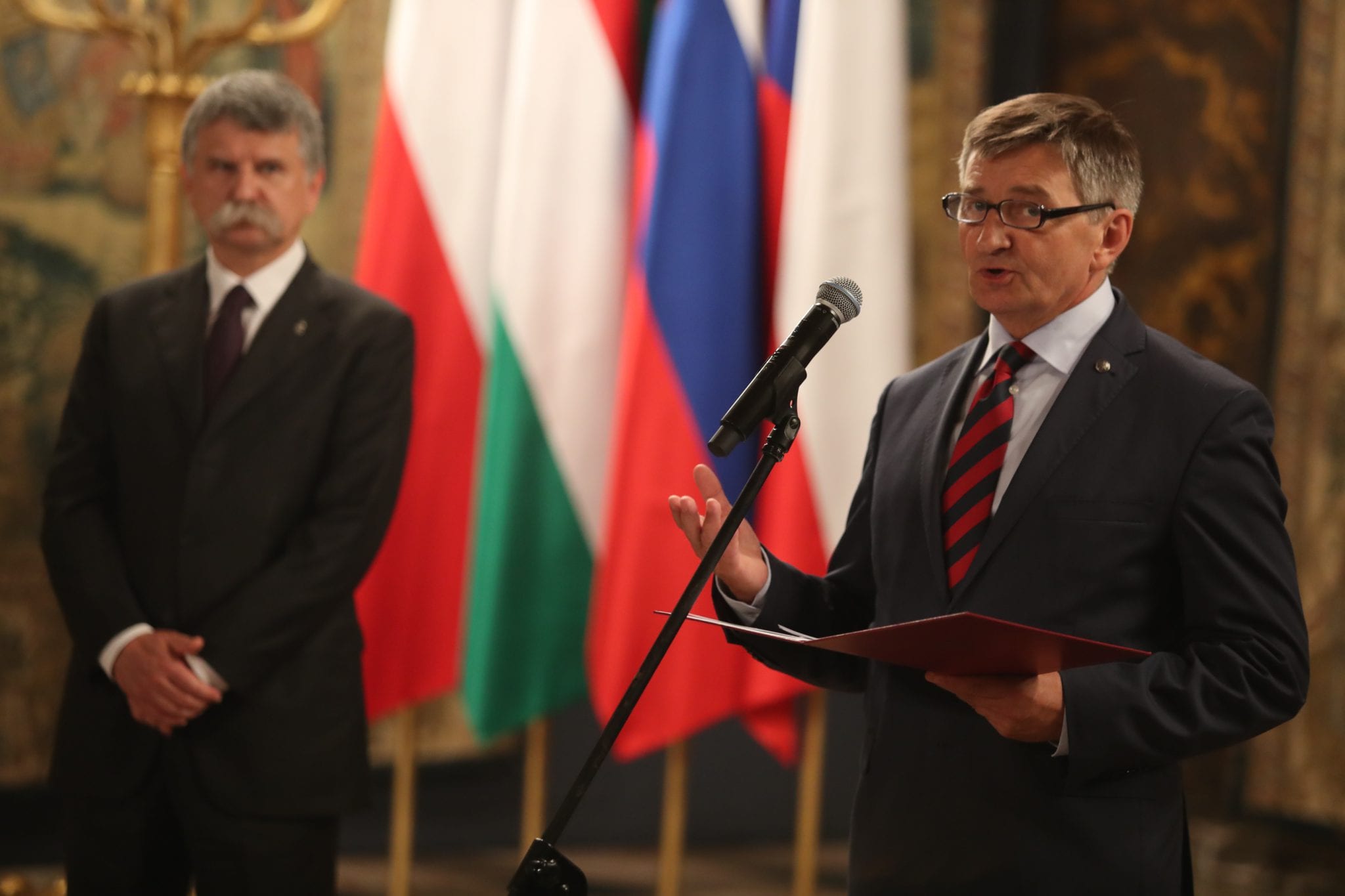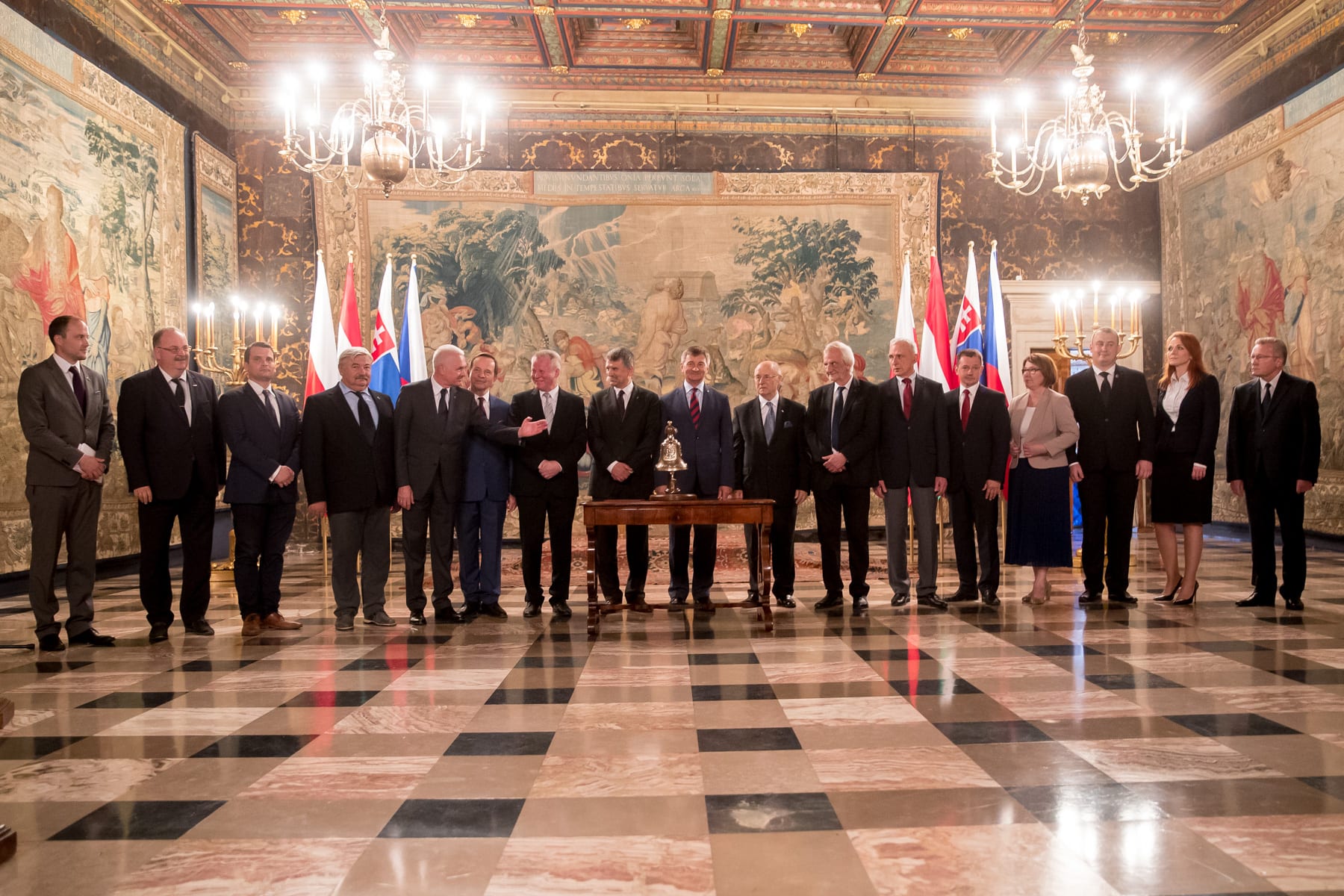On 29 June 2017, we hosted in Krakow the participants of the National Pilgrimage of Hungarians with the President of the National Assembly of Hungary, Mr. László Kövér. This cyclical event is one of the symbols of the bond connecting our brotherly nations and the values we profess.
We met in a unique place - in the city which for centuries was the capital of the Republic of Poland, the seat of its monarchs. We recalled two figures important for both Polish and Hungarian history: St Jadwiga Andegawenska and King Stefan Batory, who rest on the Wawel Castle.
We symbolically handed over the Presidency of the Visegrad Group to our Hungarian friends. The last 12 months have been a time of hard work. In its parliamentary dimension, the Polish Presidency of the Visegrad Group has endeavoured to deepen existing cooperation while at the same time striving to open up new areas of cooperation. Our activities have focused on several areas:
- Strengthening cooperation of the legislative bodies of the Visegrad Group countries;
- Joint reflection on the problems currently facing the European Union;
- Enhance broader regional cooperation;
- Increase V4 brand recognition through cultural and scientific projects.
During the year, we organized numerous formal and informal meetings of the Chairpersons of the Parliaments of the Commission Group countries and Members and Senators. These were both bilateral meetings and discussions in the V4 format. We also discussed in this group on the sidelines of multilateral events.
It was with President Kövér and deputies of the Hungarian National Assembly that we had the most meetings. In September 2016, the President visited Przemyśl, where together we unveiled a monument to a Polish legionary and a Hungarian hussar. A month later in Budapest, we commemorated the 1956 Hungarian uprising. And last year was declared the year of Polish-Hungarian solidarity.
The cooperation between our parliaments is sealed by the Strategic Partnership Agreement signed in April this year. It provides for, among other things, regular bilateral meetings, joint activities in international parliamentary organizations, regular contacts between friendship groups and mutual visits and consultations of parliamentary committees.
Thanks to the Visegrad cooperation, which is a vivid manifestation of the motto of the European Union: united in diversity, Central Europe is becoming an increasingly stronger point of reference on the geopolitical map of the world. We have already discussed and jointly developed positions on these issues.
That is why during the meetings we not only touched upon national issues or regional cooperation, but also discussed the challenges facing the European Union. We strove for active participation of the Visegrad Group in this international debate and sought to play an increasingly important role, both in terms of solving specific problems and by contributing to the development of the European integration process.
The Polish proposal for an answer to the question of the future of the EU is the concept of a Europe of Solidary States, which assumes that international relations are based on respect for the will of nations. It is equal, free and sovereign nations that are the subjects towards which European institutions should play a servile role. This conviction has resulted in a joint proposal of the Visegrad Group to strengthen the competences of national parliaments in their cooperation with EU institutions.
Our goal was also to include the Visegrad Group in broader regional cooperation, e.g. within the framework of the "Carpathian Europe" conference cycle. Therefore, during the autumn session, at the 26th Economic Forum in Krynica Zdroj, we organized a Visegrad panel with the participation of the Presidents and Deputy Presidents of the parliaments of the V4 countries.
During the Presidency we undertook numerous activities aimed at strengthening contacts between societies of the Visegrad Group countries and building a sense of regional community. The most important undertakings include:
- Preparation of the exhibition "From Visegrad to Visegrad", which presents the development of political, commercial and cultural relations between the V4 countries. The exhibition was presented in the parliaments of the Visegrad Group, as well as in other countries;
- The project has been launched at the Public Library in Oświęcim and is a separate collection of translations and publications about the Czech Republic, Slovakia, Hungary, and Central and Eastern Europe more broadly. We look forward to expanding this project with the support of the Book Institute and its counterparts in other V4 countries;
- Creating an information portal on the website of the Sejm concerning current events in the parliaments of the Visegrad Group countries. It is a reliable source of information on joint undertakings, initiatives and projects. The idea has gained approval of other member states, therefore we count on its implementation in our partners;
- Activities aimed at obtaining the inscription on the UNESCO World Heritage List of the project "Integrated protection of fortified landscape as a basis for the concept of cross-border inscription of complexes of Austrian and Austro-Hungarian fortifications as well as war cemeteries and battlefields of World War I";
- Organizing International Exhibition of Painting of the Visegrad Group 'VISEGRAD4ART', which will be opened on July 15 in the Art Gallery in Przemysl. The aim of the exhibition is to bring closer to the public contemporary painting of the artists from the V4 countries.
Only in mathematics does 4 x 1 make four. In international relations, the cooperation of countries like ours always means the action of raising to the fourth power.
We wish Hungary the best of luck in the coming 12 months.
text: Marek Kuchcinski


